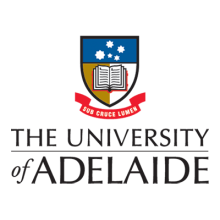The University of Adelaide will create an “integrity unit” where students and staff can “feel safe” to report sexual assault and harassment, on advice from consultants KPMG Australia.
Adelaide has vowed to accept all 22 recommendations in the KPMG report, which it commissioned following the departure of disgraced former vice-chancellor Peter Rathjen.
Professor Rathjen resigned last July amid a misconduct investigation by South Australia’s Independent Commissioner Against Corruption (ICAC), which found that he had sexually harassed two female staff and engaged in inappropriate sexual relations with a third. Findings of sexual misconduct against a Melbourne postgraduate student some 12 years earlier also emerged.
ICAC made eight recommendations concerning Adelaide’s policies, misconduct reporting processes and staff education. The university accepted all eight and asked KPMG for advice “beyond the scope of what ICAC had recommended”, according to executive dean of engineering Katrina Falkner.
Professor Falkner, who chairs Adelaide’s ICAC response steering committee, said that the university had prioritised five KPMG recommendations including the establishment of an independent integrity unit with institution-wide jurisdiction. She said that the consultants had interviewed more than 600 staff, students, volunteers and alumni about the experiences of people who had been assaulted or harassed or observed such behaviour.
“In some cases they were quite distressed by the processes they’d undergone at the university,” she said. Many interviewees had suggested an independent integrity unit, she said.
The unit will provide a “single point of contact” where bystanders and victims of inappropriate behaviour are supported in a “safe, consistent and secure way”, she explained. “It will provide tailored support and keep them updated on the progress of investigations…from the start through to the outcome.”
KPMG’s investigation revealed widespread fear about being ridiculed or “problematised” for reporting such behaviour. Some staff reported working from home, taking sick leave or avoiding parts of campus for fear of encountering their tormentors.
The investigation unearthed “multiple” breaches of confidentiality, with some people intimidated or threatened by alleged offenders or forced to study alongside them. International students were unsure what types of behaviours they could report, and feared that their studies could be terminated if they did so. Some staff said their complaints had been dismissed without reason, offering them “no closure”.
Vice-chancellor Peter Høj said the KPMG report made “sobering” reading. “So many people felt that they hadn’t been appropriately supported by us. It’s not only about structures and policies and processes. The culture of the place has to change, not only here but in wider society,” he said.
He insisted that the “only acceptable number” of cases of sexual assault and harassment was zero, and denied that such a goal was setting the university up for failure. Any other target would raise questions “about how serious we are about these matters”, he said. “We believe there is no other worthy aspiration.”
The university will also prioritise recommendations that it develop the leadership’s “capabilities to lead change”, introduce recurring ethics and integrity training, review human resources functions and “streamline and refresh” misconduct policies. KPMG also advised the university to update its conflict of interest (COI) training, particularly around close personal relationships.
The report cites obligations on staff to immediately declare potentially compromising personal relationships, with failure to do so treated as fraud. But many staff were unaware of these requirements and there was no central monitoring or oversight of COI processes.
Register to continue
Why register?
- Registration is free and only takes a moment
- Once registered, you can read 3 articles a month
- Sign up for our newsletter
Subscribe
Or subscribe for unlimited access to:
- Unlimited access to news, views, insights & reviews
- Digital editions
- Digital access to THE’s university and college rankings analysis
Already registered or a current subscriber? Login









